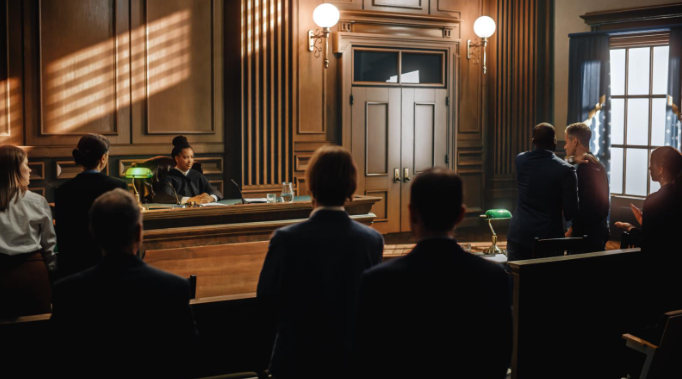There were more than 39,000 commercial vehicle crashes in Texas in 2019. More than 15,000 people suffered injuries and at least 613 of them lost their lives. However, we know that truck wrecks aren’t about statistics—each of those numbers represents a story, a struggle, and a loss.
That’s why Crosley Law’s personal injury lawyers focus their practices on commercial vehicle crashes and other serious motor vehicle crashes. We fight for victims and their families, getting them the accountability and compensation they deserve. In this blog, we discuss truck crashes, the litigation process, and what you can expect at every stage.
Step 1: Consult With a Truck Accident Lawyer
Compared to the typical car accident, truck wreck claims are remarkably complex. You need to understand Texas laws, federal trucking regulations, medicine, and the complex technology that tracks and monitors most modern trucks. Unless you’re a highly experienced truck accident lawyer, it’s easy to make mistakes.
Why You Should Never Ignore Trucking Violations After a Wreck
Under the Federal Motor Carrier Safety Administration (FMCSA)’s rules, most trucking companies must follow strict procedures when it comes to their time on the road, maintenance, and record-keeping. For example, truck drivers must take breaks under the FMCSA’s hours of service rules to reduce driver fatigue and keep our roads safer.
When violations occur, they can have catastrophic effects. That’s why Texas considers regulatory violations evidence of negligence per se, which can streamline your personal injury case and boost your ability to negotiate a fair settlement.
Importantly, most insurance companies will rush teams of investigators and lawyers to the crash site after a serious truck wreck. These teams have one primary goal: to influence the authority’s investigation and protect the insurance company’s bottom line. During their efforts, evidence sometimes disappears, and fingers are often pointed at innocent victims.
To fight back, you must be proactive and consult with a truck wreck lawyer early on. Our team knows how to preserve evidence and has even worked with the police to correct inaccurate police reports. And, we have a no-fee policy, so you’ll never pay attorney’s fees or case costs unless we recover compensation for you.
Our team knows how to preserve evidence and has even worked with the police to correct inaccurate police reports. And, we have a no-fee policy, so you’ll never pay attorney’s fees or case costs unless we recover compensation for you.
RELATED: A Grieving Mother Clears Her Daughter’s Name: Amanda and Jane’s Story
Step 2: Identify Who Is Responsible for Your Wreck
Before you can file a truck wreck lawsuit, you need to identify all the responsible parties. This might include:
- At-fault truck drivers, especially if they are independent contractors
- Trucking companies that violated safety rules and trucking regulations or acted negligently
- Businesses that improperly loaded the vehicle
- Manufacturers and distributors of defective or dangerous truck parts
- Bars and restaurants that knowingly overserved a drunk driver
- Other parties who contributed to the crash
This means that your claim might involve multiple insurance companies, legal issues, and lawsuits.
Failing to identify all the parties to your injury claim might result in less compensation for you and your family. So, it’s essential that you identify every insurance policy that covers your injuries.
RELATED: The Complicated Evidence Situation With Trucking Accident Injury Cases
Step 3: Investigate Your Claim and Begin “Pre-Litigation”
While your truck wreck lawyer’s investigation will begin on day one, it really kicks into gear during the pre-litigation phase of your claim. During this time, your attorney will collect evidence, including your medical records, crash reports, and expert opinions (such as doctors, accident reconstruction specialists, and trucking safety experts) that help frame your legal claims.
At the same time, they will calculate your damages and assess your claim’s settlement value. Depending on your circumstances, your losses might include:
- Medical bills, both now and into the future
- Medical devices and equipment that you need to live a productive life
- Lost income and wage-earning capacity
- Pain and suffering
- Long-term care costs
- Loss of enjoyment, if you can no longer do the things you love
- Loss of consortium (the loss of spousal affection or companionship)
- Funeral and burial expenses
RELATED: Insurance Settlement FAQs
Then, your lawyer will notify the insurance company of your claim and, using all the information they’ve collected, demand compensation for your losses. Sometimes, you can negotiate a settlement without filing a lawsuit. However, if that’s not possible (or your two-year filing deadline is fast approaching), you will start the formal litigation process.
Step 4: File a Personal Injury Lawsuit and Litigate Your Claims
Filing a lawsuit is the beginning of litigation, where you and the at-fault parties try to resolve your dispute in court. To begin, you’ll file a complaint, a written document where you outline your claims and make a demand for compensation. Then, you’ll have to serve the at-fault parties, letting them know that they are named as defendants in your lawsuit.
Next, the other parties must respond to your claims within a certain time. Once the court has your complaint and the defendants’ answers, they will issue a scheduling order, setting additional deadlines in your case.
From there, you and the other parties will share information (in a process called discovery), start preparing for trial, and continue your settlement negotiations.
Trucking Accidents and Wrongful Death Claims
If you are a family member of someone who died in a commercial truck wreck, you might have wrongful death claims against the trucking company and others. In addition to being emotionally difficult cases, you’ll need to take some additional steps while filing your lawsuit.
For example, you typically must open an estate with the probate court as part of a fatal truck wreck claim. Because these claims are remarkably complex, we encourage you to consult with a highly experienced personal injury lawyer.
Step 5: Go Through Dispute Resolution
Most personal injury cases settle out of court. Crosley Law’s truck wreck attorneys always try to negotiate fair settlements for our clients, and we’ve found that mediation (and other forms of dispute resolution) are powerful tools.
During mediation, all the parties to a lawsuit sit down and try to resolve their disputes with help from a mediator, a trained professional who helps them identify common ground and guides their negotiations. While we’ve been successful in negotiating many settlements during mediation, it’s not always possible. In these cases, the court will set a trial date.
RELATED: A Crash Victim’s Guide to Personal Injury Mediation
Step 6: Try Your Truck Accident Claim in Court
During a trial, a jury will consider your case, weigh the evidence, and issue a verdict. This is a very formal process, where both your injury lawyer and the insurance company’s defense team will present their arguments, ask questions to witnesses, and try to poke holes in the other side’s presentation. It can take days to complete, especially if your lawsuit involves multiple parties or complicated issues.
When you work with a skilled truck accident attorney, they will guide you through your trial and make sure that you are well-prepared. Make sure that your lawyer answers all your questions and that you understand what to expect.
While a trial might seem like the end of trucking accident lawsuit, that’s not always the case. Both sides will have an opportunity to appeal the decision, and insurance companies often assert this right. Your lawyer can help you address the arguments on appeal (and might continue to work on a settlement on your behalf).
Crosley Law: Fighting for Truck Wreck Victims in San Antonio and Across Texas
Crosley Law is one of Texas’ most respected truck wreck injury firms. We use cutting-edge tactics to stand up to trucking companies and their insurance companies. However, we combine our sophisticated litigation strategies with exceptional service and compassion.
If a reckless trucker or trucking company injured you or someone you love, we want to help. You can schedule a free consultation, by calling 210-LAW-3000 | 210-529-3000 or filling out our website’s easy contact form.
References
Commercial Motor Vehicle (CMV) Involved Crashes and Injuries by County. (2019). Texas Department of Transportation. Retrieved from https://ftp.txdot.gov/pub/txdot-info/trf/crash_statistics/2019/30.pdf
The content provided here is for informational purposes only and should not be construed as legal advice on any subject.









